
How Can I Make My Kitchen Healthy?
Kitchens are the hub of our homes. Everything revolves around them. We gather as a family for activities, complete homework, and cook all of our meals here. With so many uses, making the kitchen a healthier space benefits the whole family. There are many options to help build and create a healthy and sustainable kitchen, but what about actually maintaining your healthy kitchen? How we use and interact with our kitchens determines how healthy they are - this means more than having organic cereal in the cupboard.
Table of Contents
- How Do I Prevent Kitchen Faucet Leaks?
- How Do I Prevent My Dishwasher From Leaking?
- How Do You Prevent Refrigerator Water Line Leaks?
- What Kitchen Cleaning Products Are Actually Safe?
- Can I Make My Own Kitchen Cleaning Products?
- Plumbing
- Are Copper Pipes in Homes Safe?
- Is Poly-B Piping Safe
- How Do I Get Rid of Bugs in My Kitchen?
- Are Kitchen Microwaves Safe?
- Is Kitchen Ventilation Important?
- Why Is Water Quality Important for Good Health?
Let's start with the biggest potential problem: hidden water damage. When water fixtures fail in the kitchen, they can go unnoticed until the situation becomes grave.

Related Products
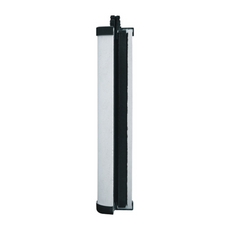
Franke Filter Cartridge Chlorine Triflo FRX02
Franke
In Stock
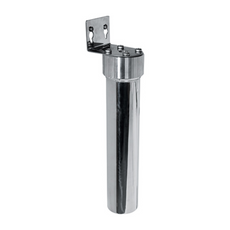
Franke FRCNSTR Stainless Steel Filtration Canister
Franke
In Stock
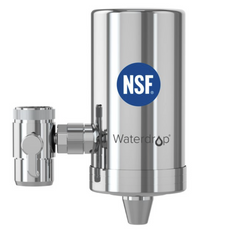
Waterdrop WD-FC-06 Faucet Water Filter
Waterdrop
In Stock
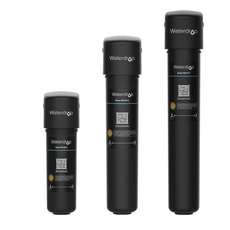
Waterdrop WD-10UB/15/17 Under Sink Water Filter with Faucet
Waterdrop
In Stock
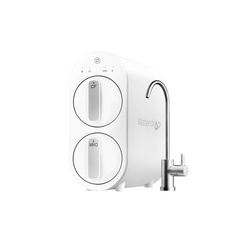
Waterdrop G2P600 Reverse Osmosis Water Filtration System
Waterdrop
In Stock
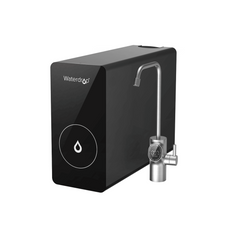
Waterdrop WD-D6-B Reverse Osmosis Water Filter System
Waterdrop
In Stock
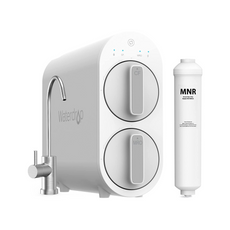
Waterdrop WD-G2MNR-W Remineralize Reverse Osmosis Water Filter
Waterdrop
In Stock
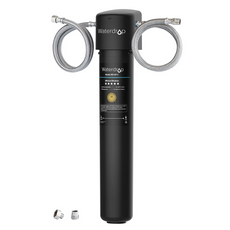
Waterdrop 17UA Under Sink Water Filter System
Waterdrop
In Stock

Waterdrop WD-TSU-W Ultrafiltration Under Sink Water Filter System
Waterdrop
In Stock

Waterdrop WD-G3P800-W Tankless RO System with UV Sterilizing Light
Waterdrop
In Stock
How Do I Prevent Kitchen Faucet Leaks?
The kitchen sink faucet is the most used tap in the house. They are turned on with elbows, banged with soup pots, and the sprayer hose gets yanked around the counter. Over time, these actions can lead to the faucet becoming loose and not securely fastened to the counter or rim of the sink. When this happens, water can migrate around and under the tap and damage the counter from below. This ongoing leakage can cause damage and mold growth under the counter for those that are cellulose-based, such as particleboard or wood.
To prevent this damage from occurring, ensure your faucets are always secure. Also, periodically pull everything out of the sink cabinet and have a look up at the bottom of the faucet mount for water damage on the counter. For counters that are not cellulose-based, leaks are still a concern, as they may also damage the cabinet itself, so it is still worth looking at.
How Do I Prevent My Dishwasher From Leaking?
While most check under the kitchen sink for leaks frequently, few inspect their dishwasher water line. While you're under the counter looking at your faucet link, have a look at the dishwasher and water filtration plumbing. These pipes are typically routed through the cabinet for secure, solid connections. Check for signs of leakage and ensure there is no damage to the cabinet floor at the same time. These checks are great things to do a couple of times a year to protect the kitchen, and if nothing else, to remove the build-up that forms under the cabinet. Leak detection systems for your home can help warn you of leaking plumbing connections and are an excellent idea.
How Do You Prevent Refrigerator Water Line Leaks?
Your refrigerator may have a water supply for ice or drinking water in the door. Ensuring that the small flexible line coming into the fridge from the house water supply is appropriately positioned is essential. Place it as far back as possible, ideally against the wall, to ensure that the refrigerator does not pinch it when it is pushed into place. Ideally, before installation, determine the best location for the line's installation by looking at the back of the fridge and finding the spot least likely to get pinched. The water line can also be made with copper and installed into the wall if you are renovating your home. Why use copper? It has less chance to pinch and is more durable.

What Kitchen Cleaning Products Are Actually Safe?
Cleaning products have one of the most significant impacts on air quality within a home. Chemicals, typically petroleum-based, are highly volatile, meaning they are unstable and quickly disperse through the air. These toxic ingredients can include known carcinogens (cancer-causing chemicals), reproductive disruptors, neurological agents (impacting brain functions), endocrine disruptors (the endocrine system regulates hormone production), and hormone mimickers (petroleum-based estrogen mimickers are common ingredients in many cleaners and plastics).
Due to these health effects, many of these products make your spaces more toxic for you and your family rather than cleaning them. These harsh chemicals are not necessary to create a safe and clean home. Natural cleaners, which used to be confined to health food stores, are now widely available and are great alternatives. These natural products will meet all of your cleaning needs, and you can replace existing products for these.

Can I Make My Own Kitchen Cleaning Products?
You can clean your home with homemade recipes that use time-tested ingredients like baking soda and vinegar. I have dozens of recipes on my website if you wish to pursue this. The chemical cleaning products should be collected and taken to hazardous waste to be disposed of safely.
Plumbing
If you are debating whether to undertake a sustainable kitchen renovation, determining your plumbing's age can help you make the decision.
Are Copper Pipes in Homes Safe?
If you have copper pipes in the house older than 1980, they may have lead solder present. Testing for lead in your water pipes is an excellent place to start if you are not sure. Lead is regulated in many jurisdictions. Certified and trained professionals are required to handle and remove it from your home safely. Check your local requirements before doing anything if you are unsure.

Is Poly-B Piping Safe
An early plastic plumbing pipe called Poly-B came out in the 1970s and was used until the 1990s. The challenge with this piping was that it became brittle under certain conditions, such as UV exposure or sitting on job sites. But more importantly, it can react to chlorine in the water or crack if connections are crimped too hard. It can harden and begin to leak at joints or around bent corners. If you have some in your home, it is good to create a plan to replace it.

How Do I Get Rid of Bugs in My Kitchen?
Compost, the garbage that missed the can, and other debris often build up under the kitchen cabinet. It can also have water present. These conditions can create an ecosystem for pests to thrive. Like us, pests need food, water, and a warm place to hang out. By managing the leaks and the foodstuffs under the sink (and everywhere else in the kitchen), we can dramatically reduce the potential for pests. The key is to create an inhospitable space for them, giving them no reason to be there. With no food or water, there is no reason to stick around. Prevention is the healthiest way to resolve pests and is safer for your family as well.

Are Kitchen Microwaves Safe?
Do you have a microwave? Unfortunately, with the low cost and quality of many microwaves, they can leak microwave radiation, a potential health issue. If you use them, be sure never to microwave plastic. Chemicals from plastic containers will leach into your food when they are heated. Some people choose to have their microwaves switched out for convection toaster ovens as a speedy alternative.
Is Kitchen Ventilation Important?
A range hood that exhausts outside is a great idea, whether using gas or electric stovetops and ovens. This will remove odors, moisture, ultrafine particulate generated from cooking with oils, and if cooking with gas, combustion by-products. When purchasing kitchen ventilation, look for an Energy Star rated fan with a low noise rating.

Why Is Water Quality Important for Good Health?
Water quality is the final issue in a kitchen. City water is treated water, and depending on how close or far you live from the treatment plant determines how much chemical exposure you have. The farthest home-delivered water must be guaranteed safe drinking water, so the closer you are, the higher the exposure to the chemicals. Chlorine and fluoride are standard, and they both react with concrete, a common type of water pipe. Heavy plastic, clay, and even lead pipes were common in various locations and periods and may still be present. You can review the city water quality results in the US here. Having your city water tested isn't a bad idea, as it lets you know what's in it.
For those on wells, you should have your water tested regularly. It is a good idea to create a baseline by testing in spring (highest water level) and fall (lowest level) so that you capture the two most extreme conditions of the groundwater. Inspect your well regularly and have a professional look at it to ensure it's not contaminated. If you have a dug well versus a newer one, you could have more contamination issues. Many jurisdictions are becoming stricter with the guidelines required to operate these wells for public health safety. Be sure to talk to your public health inspectors for the most up-to-date information.
Filtering water is a contentious issue for some people, but water filtration can be a helpful strategy once you know what is in your water. Water testing by an independent third party for chemicals, pesticides, minerals, hydrocarbons, or whatever you may be concerned about (in municipal or well water) will better understand whether or not you have water quality issues. Once you know, then you can explore appropriate filtration methods to address your specific concerns.

Considering the time spent in the kitchen and the health issues that it can generate, making it as healthy as possible is not that hard, as long as you prioritize it. Creating a healthy hub for your family to gather, cook, and eat together is a fundamental component of a healthy home.
Disclaimer: This article does not constitute a product endorsement however Rise does reserve the right to recommend relevant products based on the articles content to provide a more comprehensive experience for the reader.Last Modified: 2021-10-28T01:37:42+0000Article by:
Stephen Collette
Stephen Collette is a Building Biologist, Building Science Consultant, LEED Accredited Professional, and a Heritage Professional. Stephen is the owner of Your Healthy House and lives in Lakefield, ON with his wife and 2 daughters.